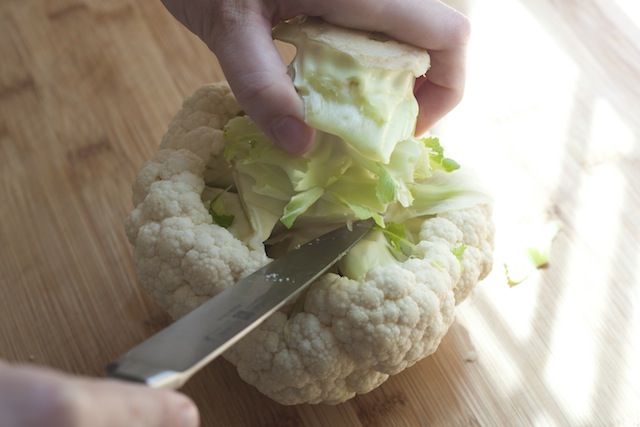Add this to your list of superfoods: Cauliflower decreases your risk of all kinds of chronic diseases
08/30/2018 / By Michelle Simmons

Think all “white” foods are bad for you? Think again. Indeed, white bread and white rice are riddled with carbs and are less satisfying, but cauliflowers are an exception. Despite its white color, the cauliflower is very versatile and nutritious that it can lower the risk of all kinds of chronic diseases.
Cauliflowers are packed with various nutrients, such as protein, fiber, vitamin C, folate, vitamin K, and vitamin B6. This vegetable is also rich in antioxidants and anti-inflammatory properties. Because of these nutrients, eating cauliflowers can keep you healthy and prevent diseases. Listed below are some of the health benefits that cauliflowers offer.
- Cauliflower reduces your risk of inflammation – Cauliflower is rich in antioxidants, which provide cells protection against damage that results in chronic health conditions.
- Cauliflower helps regulate blood pressure better – Cauliflower also contains magnesium which is beneficial for the muscular and nervous systems, as it aids in muscle contraction and cognition.
- Cauliflower supports the nervous system – In addition to magnesium, the folate and vitamin B6 contents of cauliflower also helps keep the nervous system healthy. A cup of cauliflower contains 15 percent folate and 15 percent vitamin B6.
- Cauliflower strengthens the bones – Vitamin K, which can also be found in cauliflower, is essential for bone-mineral density and blood clotting. One cup of cauliflower contains up to 18 percent vitamin K.
Furthermore, cauliflower only contains 27 calories and is a carbohydrate, like all vegetables. It is a healthier option than other white foods, such as white bread and white rice, which are highly processed carbs. Cauliflower can serve as a substitute for traditional carbs. It can help maintain flavor and keep you satiated without the added calories, which is especially beneficial for people with diabetes or those who are trying to lose weight. (Related: Cauliflower’s range of nutritional benefits are numerous and long-lasting.)
Adding cauliflower to your diet
Cauliflower can easily be added to your diet. It is fairly affordable and widely available at the market or most grocery stores. Fresh cauliflower should have a firm head without dark spots, and bright green leaves that are attached to the stem. It can be stored in the refrigerator for up to five days. Cauliflower can be prepared in several ways:
- Substitute it for white rice.
- Bake it in a cheese sauce.
- Eat it raw as a snack dipped in hummus or other healthy vegetable dips.
- Prepared them like mashed potatoes by cooking it and blending it in a food processor with Greek yogurt or cream cheese.
- Steam or roast them as a side dish.
- Make it the main ingredient in a curry.
- Use it to make pizza crust, to have a pizza rich in fiber but low in sodium.
Here’s an easy recipe using cauliflowers.
Cauliflower Rice
Ingredients:
- 1 large head cauliflower
- 3 tablespoons olive oil
- 1 medium finely diced onion
- Kosher salt
- 2 tablespoons of fresh finely chopped parsley leaves
- Juice of ½ lemon
Steps:
- To start, cut the cauliflower florets and put them into a food processor until the mixture looks like couscous.
- Heat the oil in a large skillet over medium-high heat, then add the onions to cook for about eight minutes until golden brown.
- Add the cauliflower and stir.
- Continuing to cook, add 1 teaspoon of salt and stir frequently until the cauliflower has softened.
- After three to five minutes, remove the dish from the heat.
- Put the cauliflower rice into a large serving bowl.
- Garnish with parsley, add the lemon juice, and season to taste with salt.
Read more news stories and studies on superfoods by going to Superfoods.news.
Sources include:
Submit a correction >>
Tagged Under:
This article may contain statements that reflect the opinion of the author
RECENT NEWS & ARTICLES
COPYRIGHT © 2017 SUPER FOODS NEWS





















